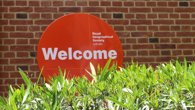
Mobilising chocolate
'Mobilising chocolate: plants, pathogens, and prospectors, 1840-1950'
Research by Mika Hyman.
Start: September 2024. Department of History and Philosophy of Science, University of Cambridge: PI Dr Staffan Mueller-Wille.
Overview
Developed in partnership with the Royal Botanic Gardens, Kew and the Royal Geographical Society, 'Mobilising chocolate' excavates both institutions' extensive collections to investigate the global mobilisation of Theobroma cacao (cacao) and chocolate in the 19th and 20th centuries. By tracking the movements and transformations of a culturally and economically important commodity, this project will address broader questions about changing agricultural, economic, and imperial climates.
Cacao beans, the seeds of the tree Theobroma cacao, are a core ingredient in chocolate. During the 19th and 20th centuries, chocolate consumption grew, and cacao production rapidly developed. This project will investigate how markets were at times hindered by diseases, but also supported through the development of new genetic varieties. It will consider how chocolate was used in imperial sponsored expeditions and how novel uses of chocolate emerged from scientific research into its nutritional qualities. To understand current-day industry issues, the project will interrogate the consequences of its rapid growth, for example by considering historic deforestation and labour controversies.
Embedding the student in the partner organisations through a collaborative PhD will enhance their access to collections, widen learning opportunities through first-hand experience of the partners' research cultures, and ensure that outcomes from the project research have the greatest impact on partner organisations.'Mobilising chocolate' offers many opportunities for public engagement: research about chocolate and cacao will be used to develop workshops on topics such as empire and sustainability; and public engagement will showcase the institutions' collections, opening opportunities for further research and partnerships.
Funded by .
